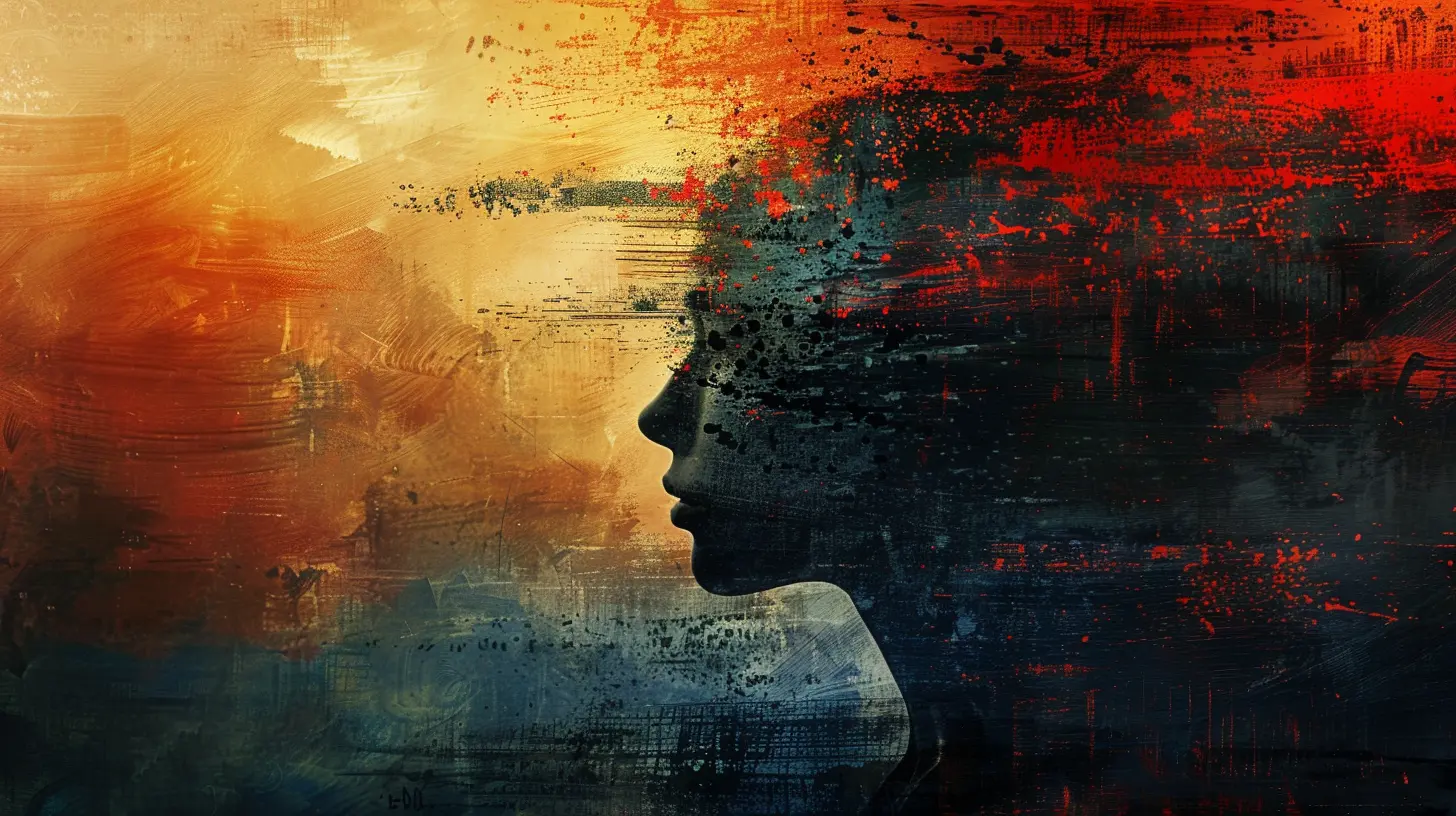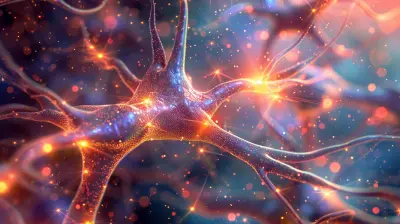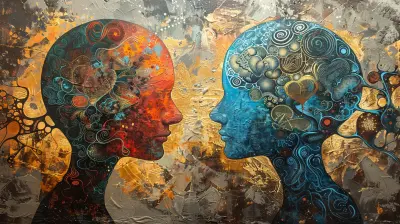The Role of Therapy in Healing from Past Trauma
23 February 2025
Trauma can be a heavy load to carry, one that often lingers long after the event has passed. It’s like having a backpack full of bricks strapped to your shoulders—constantly weighing you down, even when you’re trying to move forward. But here’s the thing: you don’t have to carry that burden alone. Therapy can be a powerful tool in lightening that load and helping you heal from past trauma.
Sounds interesting, right? Let’s dive deeper and explore how therapy plays a crucial role in healing from trauma, the different therapeutic approaches, and why it’s okay to ask for help when you need it.
What is Trauma?
Before we talk about healing, let’s get on the same page about what trauma actually is. Trauma isn't just about experiencing something physically painful. It’s also about enduring emotional or psychological distress. Trauma can come in many forms:- Physical Trauma: Injury or harm to your body.
- Emotional Trauma: Mental or emotional damage caused by distressing experiences—like abuse, neglect, or the sudden loss of a loved one.
You may have heard of "big T" trauma (like a car accident or natural disaster) and "little t" trauma (like ongoing stress from a toxic relationship). Both types can leave lasting scars, and both deserve attention.
How Trauma Affects You
Trauma doesn’t just exist in the past—it has a sneaky way of creeping into your present. You might experience flashbacks, anxiety, depression, or even physical symptoms like headaches or panic attacks. Trauma can actually alter the way your brain functions, making it tough to move on or live in the moment.But here’s the good news: while trauma can shape you, it doesn’t have to define you. Therapy offers a way to process those experiences and reclaim your life. 
Why Therapy is Important for Healing from Trauma
You might be wondering: "Why therapy? Can’t I just move on?"The thing is, trauma isn't something you can just sweep under the rug. Ignoring it doesn’t make it go away. In fact, unaddressed trauma can fester and worsen over time. Therapy provides a safe space to face the trauma, process it, and begin the healing journey.
Here’s why therapy is so crucial:
1. A Safe Space to Talk
Imagine you’re carrying a heavy bag of groceries. It’s tough to hold onto them alone, right? Therapy is like setting those bags down and having someone help you carry them. It gives you a safe, non-judgmental space to share your feelings and experiences. Sometimes just talking about your trauma can be the first step to healing.2. Gaining Perspective
When you're in the thick of trauma, it can feel like you’re stuck in a fog. Therapy helps clear that fog by giving you a fresh perspective. A therapist can help you untangle your thoughts and emotions, making sense of what happened and why you feel the way you do.3. Learning Coping Mechanisms
Life doesn’t stop because of trauma. We still have to go to work, pay bills, and keep up with relationships. Therapy equips you with coping mechanisms—like mindfulness or grounding techniques—that can help you manage trauma triggers and get through daily life without feeling overwhelmed.4. Rebuilding Trust
If your trauma involved a betrayal—like abuse or being hurt by someone close to you—it can be hard to trust people again. Therapy helps rebuild that trust, not only in others but in yourself. You start to learn that it's okay to open up and that vulnerability isn't a weakness.
Types of Therapy for Trauma
Now that we know why therapy matters, let’s look at the different types of therapy that can help heal trauma. Not all therapy is created equal, and what works for one person may not work for another. But there’s good news: there are plenty of options, and a skilled therapist can help you find the right fit.1. Cognitive Behavioral Therapy (CBT)
CBT is one of the most common approaches for treating trauma. Think of it as mental gymnastics. It helps you challenge and change the negative thought patterns that keep you stuck in a cycle of trauma.For example, if you constantly think, "I'm worthless" because of something that happened, a CBT therapist will help you break down that thought and replace it with a healthier, more accurate belief.
2. Eye Movement Desensitization and Reprocessing (EMDR)
This one might sound a little out there, but it's incredibly effective for many trauma survivors. EMDR involves recalling traumatic memories while your therapist guides you through a series of eye movements or taps. It’s believed to help your brain reprocess the trauma in a way that reduces its emotional charge.Imagine it like taking a chaotic, disorganized filing cabinet and neatly sorting everything into place—EMDR helps your brain file away traumatic memories so they don’t keep popping up unexpectedly.
3. Trauma-Focused Cognitive Behavioral Therapy (TF-CBT)
TF-CBT is essentially CBT tailored specifically for trauma. It’s often used with children and adolescents but can be effective for adults as well. It focuses on helping individuals process trauma in a safe and structured way, while also teaching coping skills to manage the emotional fallout.4. Somatic Experiencing
Ever notice how your body reacts when you’re stressed or anxious? Maybe your shoulders tense up, or your stomach churns. Trauma isn’t just in your mind—it’s stored in your body too. Somatic experiencing focuses on releasing that stored energy by tuning into your body’s physical sensations.It’s like letting out a deep breath after holding it in for too long. You start to release all that built-up tension your body has been holding onto.
5. Psychodynamic Therapy
This type of therapy dives into your past to understand how early experiences, especially traumatic ones, shape your current behavior. It’s a bit like detective work—uncovering hidden patterns and bringing them to light. Over time, this understanding can help you break free from the unconscious habits or thought patterns that keep you stuck in trauma.
How Long Does it Take to Heal from Trauma?
This is a tricky question with no one-size-fits-all answer. Healing isn’t linear, and it can take time—weeks, months, or even years. But the important thing to remember is that progress is possible.Therapy isn’t a magic wand that will erase your trauma, but it gives you the tools to navigate life more smoothly. It’s like running a marathon: you may not be at the finish line tomorrow, but with each therapy session, you’re one step closer.
Self-Care During Therapy
Therapy can be intense, and healing from trauma is hard work. That’s why self-care is so important during the process. We’re not just talking about bubble baths and face masks (although those are great too!). Think of self-care as anything that nourishes your mind, body, and soul.Some ideas:
- Journaling: Getting your thoughts out on paper can be incredibly therapeutic.
- Exercise: Movement releases endorphins and helps relieve stress.
- Mindfulness Meditation: Being present in the moment can help you manage anxiety and trauma triggers.
- Connecting with Loved Ones: Don’t isolate yourself. Reach out to friends or family who make you feel supported.
The Stigma Around Therapy: Let’s Talk About It
Unfortunately, there’s still a stigma around seeking therapy, even though it's one of the most effective ways to heal from trauma. Some people feel ashamed, weak, or embarrassed about needing help. But let’s set the record straight: asking for help is a sign of strength, not weakness.Think of therapy like going to the gym for your mind. You wouldn’t skip a workout if you wanted to get stronger, right? The same goes for therapy—it’s mental and emotional exercise that helps you build resilience, process pain, and eventually move forward.
Conclusion: Therapy as a Path to Freedom
Trauma can feel like a ball and chain, keeping you stuck in the past. But therapy offers a way to break free. It gives you the tools to process your pain, heal your emotional wounds, and start living the life you deserve.Healing from trauma isn’t easy, and it’s not something you have to do alone. If you’ve been struggling with the weight of past trauma, consider reaching out to a therapist. Remember, the goal isn’t just to survive—but to thrive.
all images in this post were generated using AI tools
Category:
TraumaAuthor:

Janet Conrad
Discussion
rate this article
8 comments
Brittany Bryant
Therapy: your VIP pass to kick trauma's butt!
March 22, 2025 at 4:10 PM

Janet Conrad
Absolutely! Therapy empowers individuals to confront and overcome their trauma, paving the way for healing and growth.
Eden McVicar
Therapy isn’t just a nice option; it’s a powerful necessity. Unpacking trauma is essential for true healing—don’t shy away from this transformative journey.
March 17, 2025 at 5:07 PM

Janet Conrad
Thank you for highlighting the importance of therapy in the healing process. It's essential for addressing trauma and fostering genuine recovery.
Nina McKibben
I'm fascinated by how therapy can reshape our narratives. What techniques are most effective in addressing deep-seated trauma?
March 10, 2025 at 5:13 PM

Janet Conrad
Thank you for your comment! Techniques like cognitive-behavioral therapy (CBT), EMDR, and narrative therapy can be particularly effective in reshaping narratives and addressing deep-seated trauma. Each offers a unique approach to processing and reframing past experiences.
Martha Maddox
Therapy provides essential tools for individuals to process and understand past trauma. It fosters healing through support, self-reflection, and coping strategies, ultimately empowering individuals to reclaim their lives.
March 6, 2025 at 4:42 AM

Janet Conrad
Thank you for highlighting the vital role therapy plays in healing. It truly equips individuals with the necessary tools for self-discovery and resilience.
Natasha Bowman
Thank you for this insightful article! It beautifully captures the transformative power of therapy in healing past wounds. It's a reminder that seeking help is a strength, not a weakness. I appreciate how you emphasize the journey of self-discovery and growth—it's comforting to know we’re not alone in this process!
March 3, 2025 at 5:47 AM

Janet Conrad
Thank you for your thoughtful comment! I'm glad the article resonated with you and highlighted the importance of therapy in the healing journey.
Axel McGuffin
Therapy is a powerful tool for healing past trauma, providing individuals with the clarity and support needed to reclaim their lives. Embrace the journey to transformation—your past does not define your future.
March 1, 2025 at 4:45 PM

Janet Conrad
Thank you for highlighting the transformative power of therapy! Embracing this journey is essential for reclaiming one's life and shaping a positive future.
Rachael Mason
“Therapy: the ultimate ‘let’s unpack those emotional suitcases’ journey. Who knew talking about our baggage could feel lighter? Just remember, it’s okay to cry, laugh, and occasionally wonder if your therapist secretly judges your snack choices!”
February 28, 2025 at 4:59 PM

Janet Conrad
Absolutely! Therapy helps us lighten our emotional load, and it's perfectly normal to experience a mix of emotions. Embracing vulnerability can lead to profound healing!
Miles McPhail
This article effectively highlights therapy's transformative role in addressing past trauma. It underscores the importance of tailored therapeutic approaches, emphasizing the therapeutic alliance and safe environments that foster healing. The nuanced exploration of various modalities provides readers with valuable insights into their healing journeys.
February 23, 2025 at 5:47 AM

Janet Conrad
Thank you for your thoughtful feedback! I'm glad you found the article highlights the importance of tailored approaches and the therapeutic alliance in healing. Your insights motivate further discussions on this vital topic.
MORE POSTS

Synaptic Pruning: How the Brain Streamlines Information

Why Early Diagnosis of Learning Disabilities Can Change a Child’s Future

How Bilingualism Affects Cognitive Function

How to Address Unspoken Tensions Before They Turn into Conflict

Overcoming Trauma Triggers in Everyday Life

Can We Trust Our Intuition? A Cognitive Science Perspective